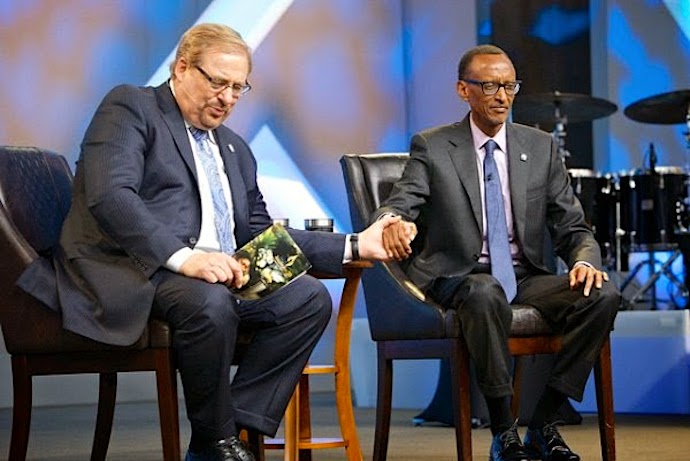Last week, the Southern Baptist Convention voted during a plenary session to disfellowship six of its nearly 50,000 member churches. One was ousted due to its “lack of intent to cooperate in resolving concerns regarding a sexual abuse allegation.” The other five were voted out because “having a female… functioning in the office of pastor” indicates they they “[do] not closely identify with the Convention’s adopted statement of faith.”*
The decision, in some ways, was no shock: the SBC updated its official statement of faith in 2000 to include its denomination-wide prohibition on female pastors. Since then, the denomination has repeatedly doubled down on its belief in women’s role—in both marriage and the church—as “helpers.” Several high-profile members have left the church in recent years citing the convention’s misogyny and skewed priorities, many in the wake of a massive sexual abuse scandal unearthed by a third-party investigation last May.
“We were in the middle of the biggest sexual abuse scandal that has ever hit our denomination,” said author and teacher Beth Moore in her 2021 announcement that she was no longer affiliated with the SBC. “And suddenly, the most important thing to talk about was whether or not a woman could stand at the pulpit and give a message.”
Tuesday’s announcement made waves because one of the six affected churches was the SBC’s second largest congregation—California’s Saddleback Church, a sprawling megachurch with 14 domestic and 4 international campuses that had been helmed by celebrity pastor Rick Warren from 1980 until 2021. Saddleback ordained three women as pastors in May of 2021, a decision that Southern Baptist Theological Seminary president Albert Mohler decried as “unwise and confusing” and that ultimately spurred an investigation by the Convention’s Credentials Committee.
Warren, who remains a figurehead at Saddleback even after he was succeeded as head pastor by Andy Wood in 2022, saw the decision coming down the pike. In a surprise speech at the 2022 Southern Baptist Convention, Warren acknowledged that it was likely his last convention and beseeched his fellow members to stop “bickering over secondary issues” like the ordination of women.
“As Western culture grows more dark, more evil, more secular, we have to decide: are we gonna treat each other as allies or adversaries?” Warren said to applause. He got his answer last Tuesday, when the SBC affirmed the findings of the Credentials Committee that Saddleback was, indeed, “not in friendly cooperation” with the core values of the convention.
One of 18 flanks of the Baptist Faith and Message, “cooperation” is a word employed frequently in SBC circles. Current SBC president Bart Barber’s dissertation at Southwestern Baptist Theological Seminary was about a 1902 schism in the convention that, he argues, should never have happened.
“We split over things that are foolish,” Barber lamented of the SBC.
The SBC’s choice to cut ties with Saddleback over the leadership of women sends a powerful message about its values and priorities. Which pastoral misdeeds warrant censure, and which can be subsumed as livable differences—or simply ignored altogether? While Saddleback founder Rick Warren has been lauded (and lambasted) as an aisle-bridging moderate for his decision to host both Barack Obama and John McCain at his church in 2008, and for his occasional criticism of Donald Trump, his church has forged political associations that, in a different denomination, might have piqued concern.
Saddleback’s missionary arm, called the PEACE Plan, grew out of the church’s close, 20-year-long relationship with the “model partner nation” of Rwanda. Warren says that he received a personal letter from Rwandan president Paul Kagame in 2003 asking him to “help us rebuild our nation.” Since then, Warren has made countless trips to the Central African country, even as Kagame’s documented human rights violations have drawn increasing criticism internationally.
When Warren hosted President Kagame at Saddleback Church in 2019, Rwandan pastor and activist Christine Coleman told the LA Times that the event was akin to “inviting Hitler to a Holocaust remembrance event.” If SBC leadership was troubled by Warren’s ongoing friendship with Rwanda’s “darling tyrant,” such actions did not put Warren outside the bounds of “cooperation” with SBC values.
Warren has also caught criticism, although not from the SBC, for his relationship with Rwanda’s northern neighbor, Uganda, whose criminalization of homosexuality has been censured by the United Nations and other international bodies. Although Warren has argued that his “influence in that nation has been greatly exaggerated,” his years-long friendship with vociferously anti-gay Ugandan pastor Martin Ssempa has been well-documented, as have his visits with the Ugandan first family.
Also apparently unworthy of scrutiny by the SBC’s Credentials Committee are the various scandals associated with Saddleback’s new senior pastor, Andy Wood. In his role as pastor of SBC-affiliated megachurch Echo.Church in San Jose, California, Wood was accused of an “abusive” fear-based leadership style by church staff and volunteers. Although a third-party investigation hired by Saddleback Church cleared Wood of the allegations on the basis of reviewed texts and emails, the investigation team reportedly did not speak with Wood’s accusers.
Wood has also worked to disappear evidence that he invited disgraced megachurch pastor Mark Driscoll to serve as a featured speaker at Echo’s 2021 leadership conference. Despite the fact that, in a since-deleted video of the event, Wood praised Driscoll’s authoritarian leadership style and Driscoll characterized his own fall from grace as a witch hunt, Wood claimed after facing criticism that he only platformed Driscoll “to help other leaders avoid the same mistakes he made.”
Scandal, abuse, and unsavory international influence are not unique to Saddleback Church, but instead seem to be a thematic constant of the Southern Baptist Convention. Moreover, scandal, abuse, and unsavory international influence had, apparently, no bearing on Saddleback’s rejection from the SBC. What truly put them out of cooperation with the denomination was their choice to give Wood’s wife Stacie the title of Teaching Pastor.
What does it take to stay in cooperation with the SBC? Tuesday’s disfellowship announcement suggests that stalwart refusal to ordain women can cover a multitude of other sins. As per usual with the SBC, boundary policing around gender, race, and sexuality rises to the top of its list of concerns to the detriment of dealing with urgent internal issues of abuse. Of course, as I and others have argued before, abuse is a natural corollary of theology that limits women’s recourse to men’s power. As long as the SBC maintains gender hierarchy as a core feature of what it means to be in “cooperation” with the denomination, it will continue to censure its members for all the wrong reasons.
As for the members of the newly-disfellowshipped congregations, they might want to ask themselves whether cooperation with the SBC reflects their own core values—and whether their own pastors live up to those values in the ways that really matter.
*CORRECTION 3/1/23: In an earlier version ordination of women was given as the cause of disfellowship. Read the author’s detailed follow up HERE.





